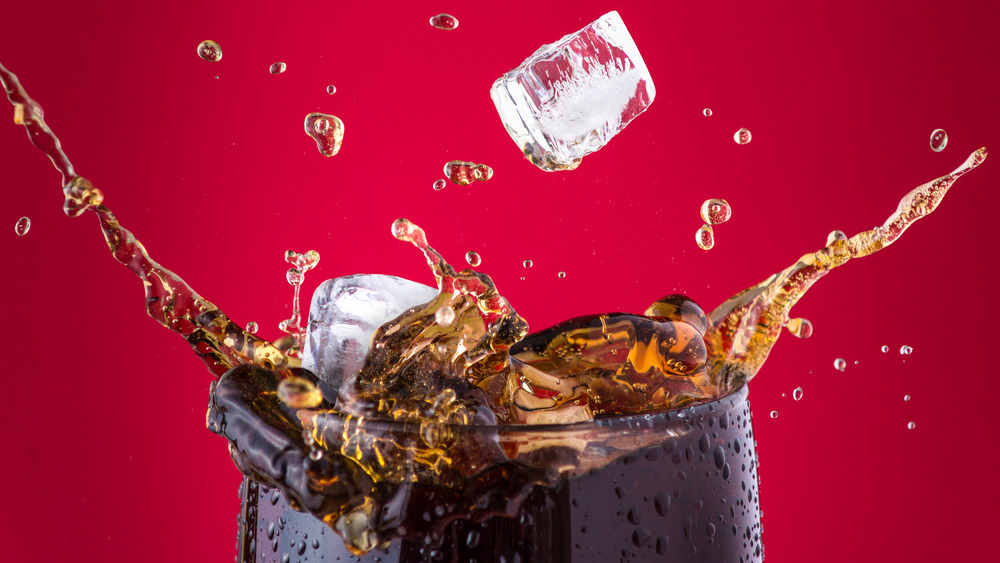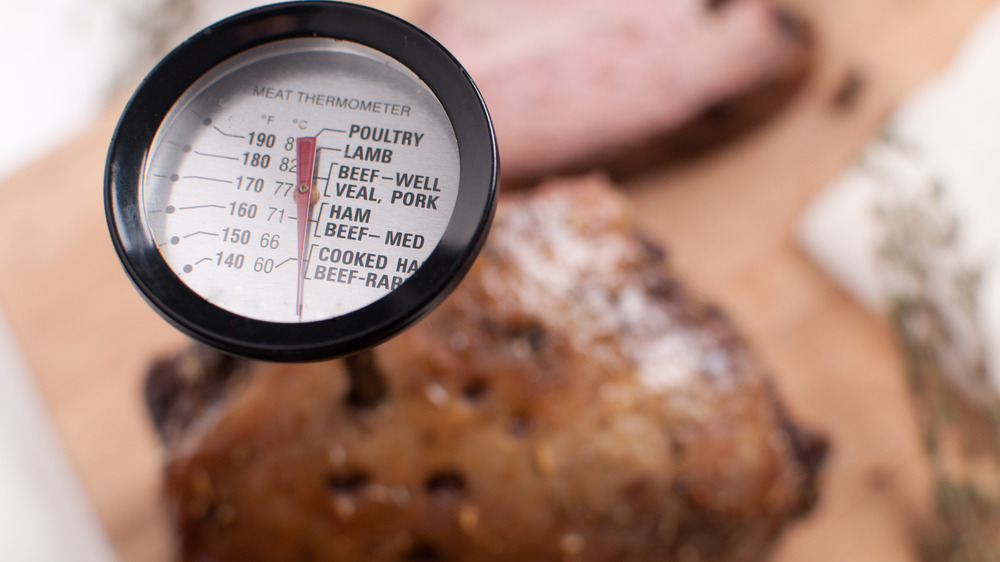Don't Believe This Myth About Pork And Coca-Cola
"Don't believe everything you read on the internet" is pretty common advice to read on the internet, but there's a reason for that. Myths, conspiracies, and pure fiction abound online, and perhaps due in part to our ever-updating streams of content, these fables can become internet folklore, and then just regular folklore, within a relatively short timespan (via HowStuffWorks).
Take, for instance, the story that marinating pork in Coca-Cola will cause worms in the meat to come out. You might remember reading about it on Reddit, or even seeing a video of it on YouTube back in the day, but in reality, the entire story is just a food myth.
The only truth to the claim is that you can get sick from eating undercooked pork infected with a species of worm called Trichinella (via the CDC). However, nowadays the condition is much less commonly contracted from pork, thanks to new legislation banning the feeding of raw-meat garbage to hogs (but is still contracted from undercooked wild game).
However, even if the pork chops in your fridge were to be infected, Coca-Cola still wouldn't be the answer.
What Coca-Cola really does to pork
In truth, Coca-Cola will do nothing to make your pork any safer, or to expose hidden contaminates (via Snopes). It's just a soda. And as unhealthy as a diet full of soda might be, Coca-Cola alone isn't corrosive or acidic enough to provoke any real reaction from the meat, or make it any safer to eat. A much more reliable way to ensure you don't get sick would be to use a meat thermometer to make sure your pork is fully cooked.
However, while it won't help with worms, there are still a few good reasons to combine Coca-Cola and pork. For instance, blogger Cafe Delites has a recipe for slow-cooked carnitas made with Coke, and the reviews are great. Or, you could use some of the soda to sweeten up the marinade for your pork chops or tenderloin (via Kroger).
Do stay skeptical, though; the next time you see some wild claim online about a carbonated beverage having inexplicable effects on food, it might very well be a myth.

